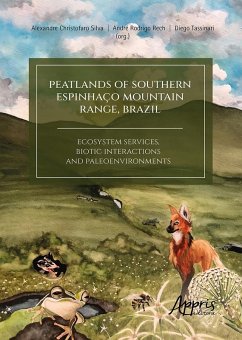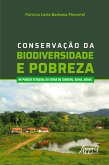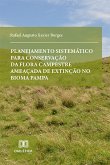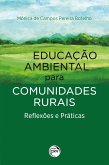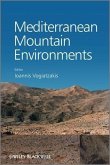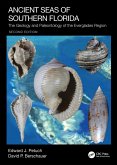Peatlands are transition ecosystems between terrestrial and aquatic environments, formed by the accumulation in time and space of plant tissues under conditions of excessive humidity, low nutrient availability, low pH and oxygen scarcity, where organic matter undergoes slow humification processes. The peatland ecosystems of the Southern Espinhaço Mountain Range, located in Minas Gerais State, Brazil, were formed by the sui generis combination of environmental factors, source of its great biodiversity, endemic and peculiar. For thousands of years these ecosystems have been developing, preserving proxies for environmental reconstitution, sequestering more and more carbon and increasing their capacity to store water ("sponge effect") and regulate the flow of water courses. Environmental reconstitution studies carried out in these ecosystems have evidenced several regional paleoclimatic changes in the last 35 thousand years. The stock of sequestered carbon is 4,877,840 tons and 142,138,262 m3 of water are stored in 14,288 ha of these peatlands. These ecosystems constitute the headwaters of rivers in the most important basins in eastern Brazil: the São Francisco, Jequitinhonha and Doce river basins and regulate their flow during the dry period of the year. However, peatlands located outside protected areas are threatened by anthropization. The Long-Term Ecological Research Program "Peatlands of the Southern Espinhaço Mountain Range: ecosystem services and biodiversity" - PELD TURF (fund: CNPq and FAPEMIG), started in 2021, intensified the characterization and monitoring of the biodiversity and ecosystem services of these peatlands. The results of two decades of research revealed the importance of these ecosystems for biodiversity, for the global carbon cycle, for regional water resources and for paleoenvironmental reconstitution. It was also evident that the rapid degradation of these ecosystems, caused mainly by anthropization, can irreversibly compromise, in the medium term, their ecosystem services, biodiversity and paleoenvironmental reconstitution studies. Thus, it is urgent to empower local and regional communities about the importance of peatland ecosystems both for the environment, for the socio-economy and for the quality of life of their populations, as well as for the planet.
Dieser Download kann aus rechtlichen Gründen nur mit Rechnungsadresse in A, B, BG, CY, CZ, D, DK, EW, E, FIN, F, GR, H, IRL, I, LT, L, LR, M, NL, PL, P, R, S, SLO, SK ausgeliefert werden.

